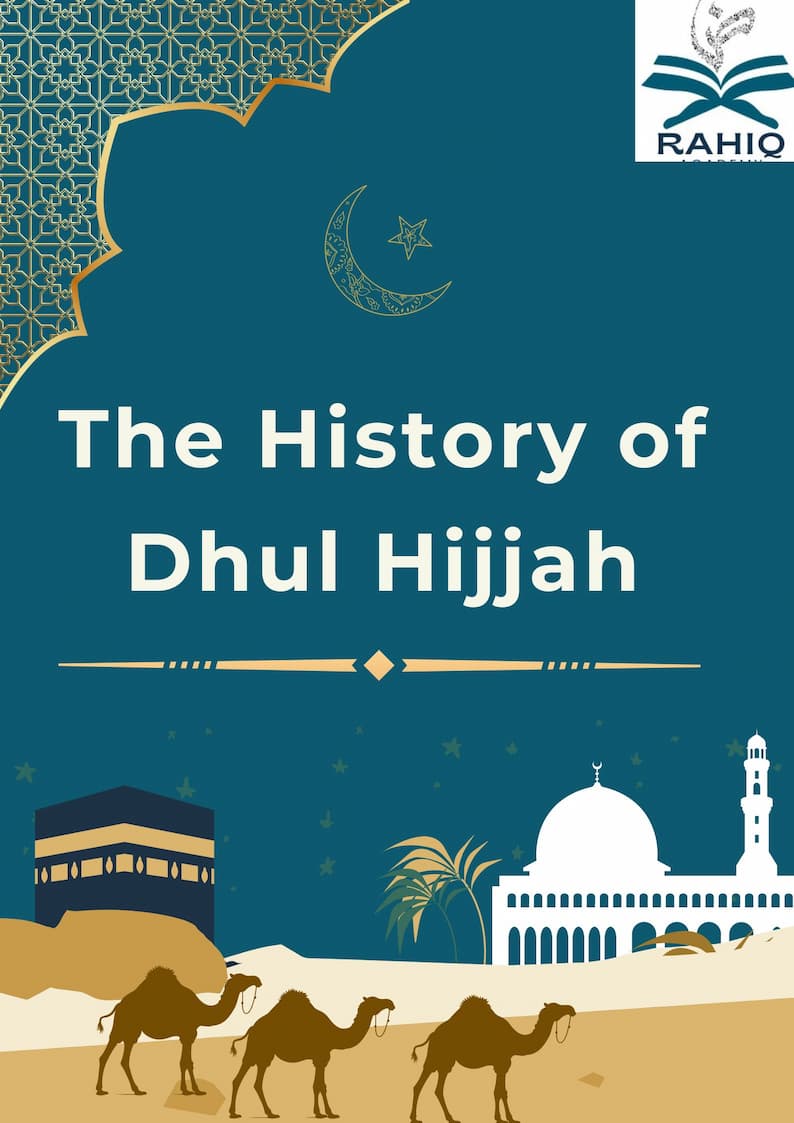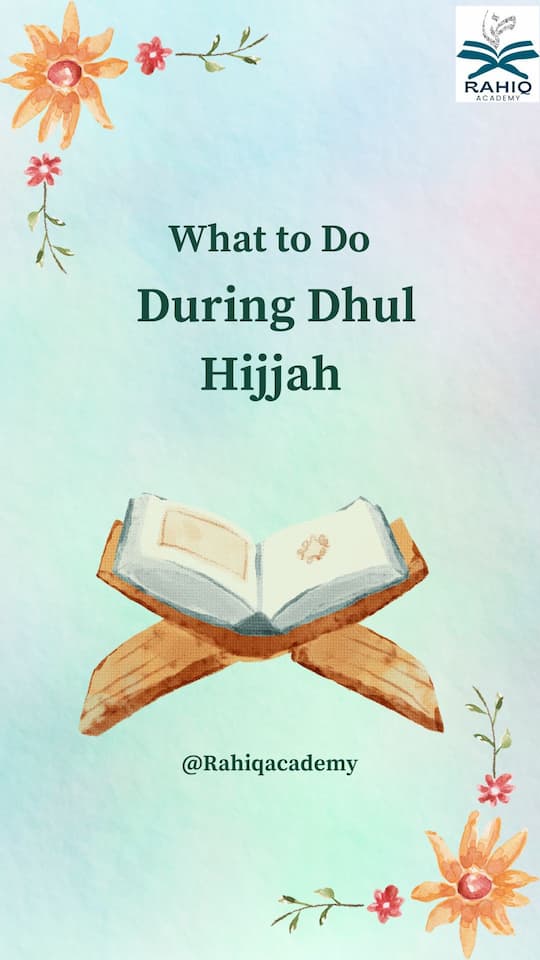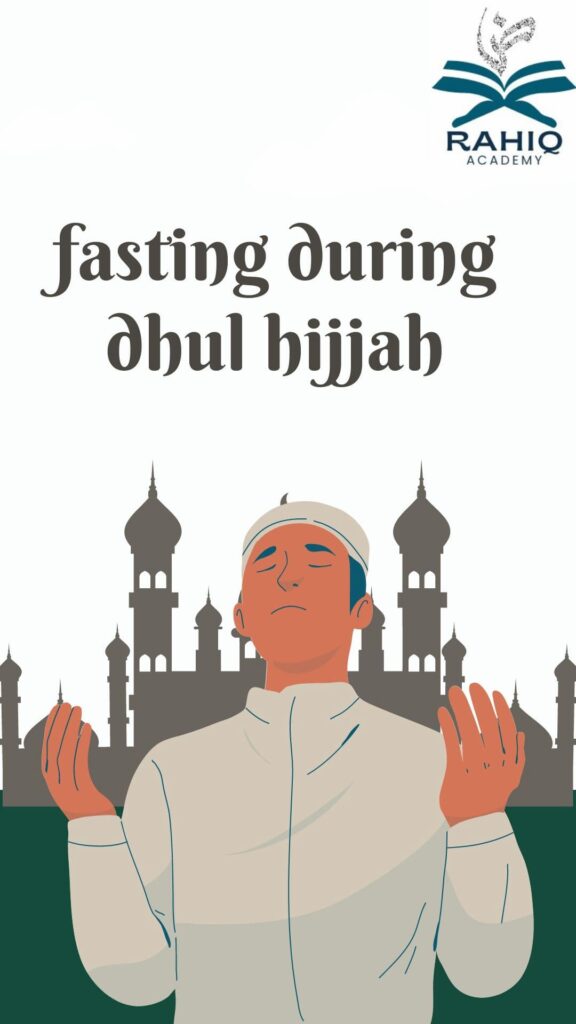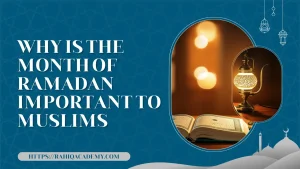The month of Dhul Hijjah is one of the most sacred and blessed months in the Islamic calendar. It holds immense spiritual significance and is a time of increased devotion, worship, and opportunities to attain Allah’s forgiveness and rewards. During this month, Muslims around the world perform the sacred pilgrimage of Hajj and celebrate Eid ul-Adha, commemorating Prophet Ibrahim’s (peace be upon him) unwavering submission to Allah’s command.
Explore the benefits of Fasting During Dhul Hijjah the great Islamic month
The History of Dhul Hijjah

The name “Dhul Hijjah” is derived from the Arabic word “Hajj,” which means “to intend a journey” This month is called such because it is during this time that millions of Muslims embark on the sacred journey of Hajj, one of the five pillars of Islam. The Hajj rituals, including the symbolic stoning of the devil and the sacrificial offering (Qurbani), are performed during the first ten days of Dhul Hijjah.
Benefits of Dhul Hijjah
The Benefits of Dhul Hijjah include increased opportunities for forgiveness, charity, and spiritual growth.
Fasting During Dhul Hijjah
The Prophet Muhammad (peace be upon him) emphasized the importance of fasting during the first nine days of Dhul Hijjah. In a hadith narrated by Abu Dawood and an-Nasa’i, one of the wives of the Prophet (peace be upon him) said:
” قَالَتْ إِحْدَى نِسَاءِ النَّبِيِّ صَلَّى اللَّهُ عَلَيْهِ وَسَلَّمَ كَانَ رَسُولُ اللَّهِ صَلَّى اللَّهُ عَلَيْهِ وَسَلَّمَ يَصُومُ تِسْعَ ذِي الْحِجَّةِ ”
“The Messenger of Allah (peace be upon him) used to fast nine days of Dhul-Hijjah.”
(Sunan Abi Dawood: 2436, Sunan an-Nasa’i: 2417 – Sahih)
This hadith highlights the Sunnah (tradition) of the Prophet (peace be upon him) to fast during the first nine days of Dhul Hijjah.
Significance of Fasting the First Ten Days
The Prophet Muhammad (peace be upon him) emphasized the immense rewards associated with performing righteous deeds during the first ten days of Dhul Hijjah. In a hadith narrated by Al-Bukhari, Ibn Abbas (may Allah be pleased with him) reported that the Prophet (peace be upon him) said:
“مَا مِنْ أَيَّامٍ الْعَمَلُ الصَّالِحُ فِيهَا أَحَبُّ إِلَى اللَّهِ مِنْ هَذِهِ الْأَيَّامِ الْعَشْرِ قَالُوا يَا رَسُولَ اللَّهِ وَلَا الْجِهَادُ فِي سَبِيلِ اللَّهِ قَالَ وَلَا الْجِهَادُ فِي سَبِيلِ اللَّهِ إِلَّا رَجُلٌ خَرَجَ بِنَفْسِهِ وَمَالِهِ فَلَمْ يَرْجِعْ مِنْ ذَلِكَ بِشَيْءٍ”
“There are no days on which righteous deeds are more beloved to Allah than these ten days.” They (the Companions) said, “O Messenger of Allah, not even jihad for the sake of Allah?” He said, “Not even jihad for the sake of Allah, unless a man goes out himself with his wealth and does not come back with anything (i.e., he expends all his wealth and is martyred).”
(Sahih Al-Bukhari: 969)
Virtues of Fasting on the Day of Arafah
The ninth day of Dhul Hijjah, known as the Day of Arafah, holds special significance. Fasting on this day is highly encouraged and carries immense rewards. The Prophet Muhammad (peace be upon him) said:
“صَوْمُ يَوْمِ عَرَفَةَ أَحْتَسِبُ عَلَى اللَّهِ أَنْ يُكَفِّرَ السَّنَةَ الَّتِي قَبْلَهُ وَالسَّنَةَ الَّتِي بَعْدَهُ”
“Fasting on the Day of Arafah, I hope from Allah that it will expiate the sins of the previous year and the coming year.” (Sahih Muslim: 1163)
Giving Qurbani (Sacrifice)
One of the significant acts performed during Eid ul-Adha is the sacrifice of an animal, known as
Giving Qurbani.
This ritual commemorates Prophet Ibrahim’s (peace be upon him) unwavering obedience to Allah’s command to sacrifice his son Ismail (peace be upon him). However, Allah replaced Ismail with a ram at the last moment, as stated in the Quran:
” وَفَدَيْنَاهُ بِذِبْحٍ عَظِيمٍ ”
“And We ransomed him with a great sacrifice.” (Surah As-Saffat, 37:107)
The Prophet Muhammad (peace be upon him) encouraged Muslims to perform the Qurbani, saying:
” مَنْ كَانَ لَهُ سَعَةٌ وَلَمْ يُضَحِّ فَلَا يَقْرَبَنَّ مُصَلَّانَا ”
“Whoever has the means and does not offer sacrifice (on Eid ul-Adha), let him not approach our place of prayer (Eid prayer ground).” (Ibn Majah: 3123 – Sahih)
What to Do During Dhul Hijjah

In addition to fasting and performing the Qurbani, there are several other recommended acts of worship and good deeds that Muslims can engage in during the blessed month of Dhul Hijjah.
Increase Remembrance of Allah
The Prophet Muhammad (peace be upon him) encouraged increased remembrance of Allah (dhikr) during the first ten days of Dhul Hijjah. In a hadith narrated by Ahmad, the Prophet (peace be upon him) said:
” مَا مِنْ أَيَّامٍ الْعَمَلُ الصَّالِحُ فِيهِنَّ أَحَبُّ إِلَى اللَّهِ مِنْ هَذِهِ الْأَيَّامِ الْعَشْرِ فَأَكْثِرُوا فِيهِنَّ مِنَ التَّهْلِيلِ وَالتَّكْبِيرِ وَالتَّحْمِيدِ ”
“There are no days in which good deeds are more beloved to Allah than these ten days, so recite a great deal of tahleel (lā ilāha illa Allāh), takbeer (Allāhu akbar), and tahmeed (al-ḥamdu lillāh) during them.” (Musnad Ahmad)
Glorifying Allah through these powerful words and remembrances is highly encouraged during these blessed days.
Maintain Ties of Kinship
The Prophet Muhammad (peace be upon him) emphasized the importance of maintaining ties of kinship, as it is a means of increasing one’s provision and lifespan. In a hadith narrated by Al-Bukhari, the Prophet (peace be upon him) said:
” مَنْ أَحَبَّ أَنْ يُبْسَطَ لَهُ فِي رِزْقِهِ وَيُنْسَأَ لَهُ فِي أَثَرِهِ فَلْيَصِلْ رَحِمَهُ ”
“Whoever would like his provision to be increased and his lifespan to be extended, let him maintain the ties of kinship.” (Sahih Al-Bukhari)
During the month of Dhul Hijjah, it is recommended to strengthen family bonds, visit relatives, and uphold the ties of kinship.
Give Charity
Giving charity (sadaqah) is highly encouraged during the blessed days of Dhul Hijjah, as the rewards for good deeds are multiplied manifold. The Prophet Muhammad (peace be upon him) said:
” مَا مِنْ أَيَّامٍ أَعْظَمَ عِنْدَ اللَّهِ وَلَا أَحَبُّ إِلَيْهِ الْعَمَلُ فِيهِنَّ مِنْ هَذِهِ الْأَيَّامِ الْعَشْرِ فَأَكْثِرُوا فِيهِنَّ مِنَ التَّهْلِيلِ وَالتَّكْبِيرِ وَالتَّحْمِيدِ ”
“There are no days greater and more beloved to Allah for people to do good deeds than these ten days, so increase your tahleel (saying lā ilāha illa Allāh), takbeer (saying Allāhu akbar), and tahmeed (saying al-ḥamdu lillāh) during them.” (Ahmad)
Muslims are encouraged to be generous and give as much charity as possible during this time to attain the pleasure of Allah.
Observe the Sunnah of Fasting on White Days
The Prophet Muhammad (peace be upon him) encouraged fasting on the 13th, 14th, and 15th of every lunar month, known as the “White Days.” However, during Dhul Hijjah, it is recommended to fast on the 16th instead of the 13th, as the 13th is one of the Tashreeq Days (the days after Eid ul-Adha), during which fasting is forbidden. In a hadith narrated by Muslim, the Prophet (peace be upon him) said:
” أَيَّامُ التَّشْرِيقِ أَيَّامُ أَكْلٍ وَشُرْبٍ وَذِكْرِ اللَّهِ ”
“The days of Tashreeq (11th, 12th, and 13th of Dhul Hijjah) are days of eating, drinking, and remembering Allah.” (Sahih Muslim)
By observing the Sunnah of fasting on the White Days, Muslims can attain the reward of fasting for an entire year, as mentioned in a hadith narrated by Al-Bukhari and Muslim.
Conclusion
The month of Dhul Hijjah is a time of immense spiritual blessings and opportunities for Muslims to draw closer to Allah through various acts of worship and good deeds. Fasting during the first nine days, giving charity, performing the Qurbani, and increasing remembrance of Allah are all highly encouraged practices during this sacred month.
By embracing these traditions and following the Sunnah of the Prophet Muhammad (peace be upon him), Muslims can attain the forgiveness of Allah and earn countless rewards. May Allah grant us the ability to make the most of this blessed time and accept our efforts and sacrifices. Ameen.
Want to take your Arabic and Quranic studies to the next level?
Explore our comprehensive Online Courses designed for all skill sets!
Visit our Website to learn more, book Your Free Evaluation and enroll today.




